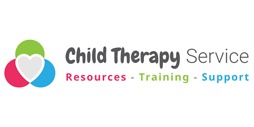Idea
The Child Therapy Service CIC is a social, emotional, and mental health education and support platform, designed to improve the emotional health and life chances of young people.
In 2021, 100,000 children aged 6-16 years old were referred to CAMHs each month. The Child Therapy Service’s goal is to prevent these referrals, through educating and supporting children, families, and professionals on effective evidence-based emotional health modalities. Through their on-line platform of therapeutic resources, training, and support programmes – they are reinventing children’s mental health services.
People
Tracy Chadwick is the Founder of the Child Therapy Service CIC. Tracy is a passionate, focused and determined Social, Emotional and Mental Health Educational Consultant, Therapeutic Practitioner, Teacher, and Trainer – with nearly 2 decades of experience in supporting children, families, and professionals.
Tracy set up this service when her son began to struggle with his mental health – and received nothing but waiting lists and closed doors. Why? Because her son was neurodivergent and the services available only supported neurotypical children.
There needed to be another way – one that met the emotional needs of the individual – not the label. That other way is the Child Therapy Service CIC.
Impact
The Child Therapy Service CIC aims to create a platform of services that supports any young person experiencing emotional ill-health. They aim to do this by offering instant access to evidence-based effective emotional health modalities for the child, family, healthcare, and education professional. Facilitating collaboration and creating opportunities of empowerment.
In addition to having a positive impact on the lives of young people, the Child Therapy Service CIC will also have a wider impact on the lives of families and professionals, including:
- increased school attendance and academic progress for the child
- reduced one-to-one staff provision in schools
- improved well-being of staff and increased retention
- improved well-being of the family unit
- reduced the need for flexi-timetables
- increased capacity for the parent/carer to return to work – because they don’t have to take their child into school on an unlawful flexi-timetable.
Lead entrepreneur
Tracy Chadwick
Get in touch
The Child Therapy Service is looking for organisations that have the same vision, passion, and determination to reduce the need for CAMHS referrals. Organisations that believe in empowerment of the individual – to teach them how to understand and manage their own emotional needs.
Follow Child Therapy Service on Instagram:
Find Child Therapy Service on LinkedIn:
Find Child Therapy Service on Facebook:


